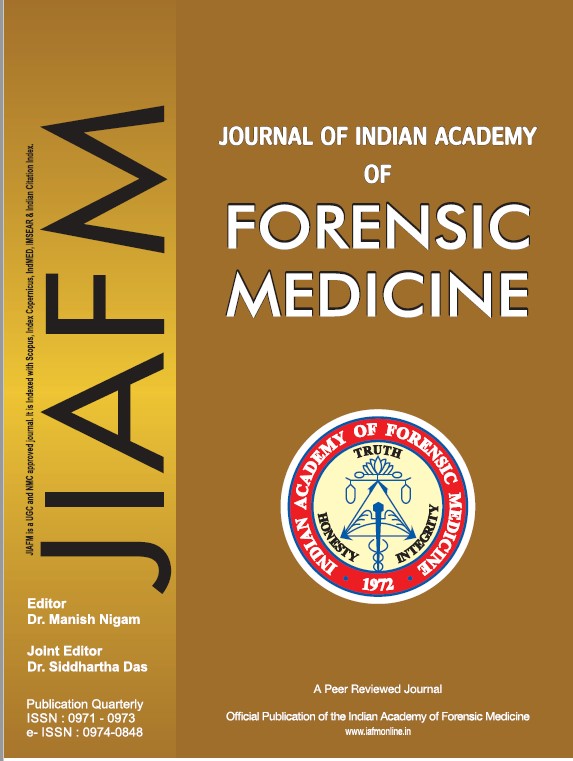Lateral Cephalometric Assessment of Facial Soft tissue Thickness for Craniofacial Reconstruction in an Indian Population-A Retrospective Study
Keywords:
Facial soft tissue thickness, Forensics, Skeletal classes, Lateral cephalogramAbstract
Facial soft tissue thickness (FSTT) is a pertinent tool for forensic anthropologists to aid in facial reconstruction, a process that combines both art and science to recreate a recognizable face from an unidentified skull. The facial profile, together with the age and gender of a person is related to FSTT, which is required for accurate facial reconstruction and recognition. These FSTT data are anthropological and differ in various ethnic groups. Until now, no study exists in which the FSTT of the population of Haryana has been measured. Thus, this study aimed to assemble data by deriving mean FSTT in males and females of Haryana origin using lateral cephalograms. Lateral cephalograms of 150 subjects were collected and retrospectively categorized into three skeletal classes (based on convex, straight, or concave facial profile). FSTT was determined at different fixed anatomical landmarks on the lateral cephalograms using the adobe software. There was no significant difference in the FSTT among males and females. Significant differences in FSTT among various anatomical landmarks were present among the different skeletal classes. This research provides valuable data for forensic facial reconstruction and identification of young adults in the study population


